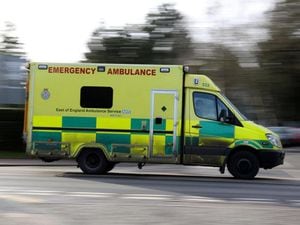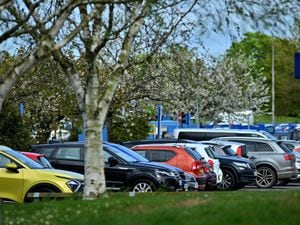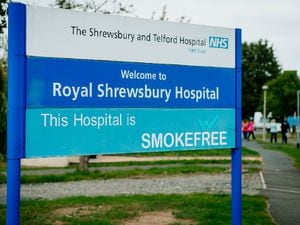Rural areas in Shropshire ‘at risk’ over 999 wait times
People with life threatening emergencies in Bridgnorth have to wait more than twice as long for an ambulance than in other parts of the county – more than three and a half minutes behind the national average.

An investigation last week found that people in WV16 postcodes, including Bridgnorth, wait an average of 11 minutes and 27 seconds for serious emergencies including heart attacks, longer than the national average of seven minutes and 41 seconds.
Gill George, chair of Shropshire, Telford & Wrekin Defend Our NHS, said the lives of Bridgnorth residents are being risked unnecessarily.
She said the issue will only worsen should Telford’s A&E close in line with Future Fit plans.
A West Midlands Ambulance Service (WMAS) newsletter from last week said that of 84 patients taken to Telford's Princess Royal Hospital on one day, March 4, only 13 were handed over within 15 minutes while 16 patients waited over an hour.
Ms George said: “When you have the sort of waiting times that Bridgnorth are having, it dramatically increases the chance of death or lifelong injuries. The possible closure of Telford’s A&E will certainly catch the people of Bridgnorth as at the moment, many residents would be taken there for treatment.”
Bridgnorth response times compare to five minutes and seven seconds in TF2, covering Muxton and Wrockwardine Wood in Telford, and five minutes and 41 seconds in SY3 including Bayston Hill and Bicton Heath, near Shrewsbury.
"We need to demand our CCGs start investing adequately in ambulance services across the whole of the patch, not just Shrewsbury and Telford,” she added.
Mark Docherty, director of nursing, quality and clinical commissioning at WMAS, said: “Some of these rural areas are very isolated and therefore it does take a bit longer to get to patients, but overall we’re providing a very responsive service to our patients.
“It’s a fact of living in a rural area where the roads are not as good and there’s further distances to travel. We did some work looking at what Shropshire would need if we were to get response times that were more akin to Birmingham.
"For Shropshire it would mean putting three times as much resources in to even get marginal gains of a couple of minutes quicker but overall we’re providing a very responsive service to our patients.”





